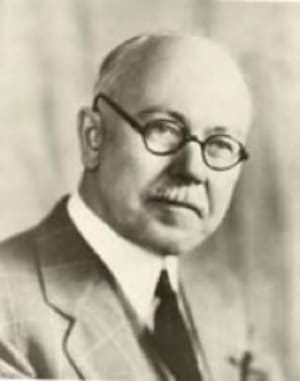The Founding Fathers (and Mothers) of Marketing
As we approach this 4th of July here in the United States, thoughts turn to fireworks, barbeque, and maybe some watermelon. But this is the 249th anniversary of the United States! (2025 minus 1776… carry the one… yep. Nailed it!) So, let’s take a moment to think about some “Founding Fathers”. Who were they? What did they say? What can they teach us that’s relevant to today? And, as I believe the great Abraham Lincoln asked, “How can I tell that the past isn’t a fiction designed to account for the discrepancy between my immediate physical sensations and my state of mind?” *
Ok, maybe we skip that last one, I don’t want to get that existential. Also, I don’t want to get into discussions on originalism (don’t get political Allen, don’t get political). What I do want to do is talk about the “Founding Fathers (and Mothers) of Marketing”.
If you studied marketing in college (I did not), some of this may not be new. But looking back on some of the things these people pioneered might give us some ideas on where we are and where we could potentially go given the current landscape.
Lessons from the Past
Before there were TikToks, DMs, and hyper-targeted algorithms, there were minds grappling with the same fundamental questions: What makes people notice a product? What gets them to care? And how do you keep them coming back?
Let’s take a look at a few of marketing’s most influential figures and what their philosophies can still teach us today.
Claude C. Hopkins: The Power of Testing and Specificity
One of the original “founders” of modern advertising, Claude Hopkins believed in two things above all: testing and truth. He popularized the idea of split testing ads and was obsessed with data before “data-driven” became a buzzword. In his world, good marketing wasn’t about fluff, it was about specificity, clarity, and results.

“The competent advertising man must understand psychology. The more he knows about it the better. He must learn that certain effects lead to certain reactions.”
Today, whether you’re running an email campaign or tweaking website copy, Hopkins would tell you: Test it. Tweak it. Test it again.
David Ogilvy: The Original Brand Strategist
Often called the “Father of Advertising,” Ogilvy took a more polished approach, focusing on brand image and storytelling. He believed your brand should have a distinct personality and that everything from your headline to your logo should reinforce it.
“The consumer isn’t a moron. She is your wife.”

He was reminding us to respect the audience, to write as if we were talking to a smart, curious person (not shouting at a billboard). Still true, even when the audience is scrolling at 80mph on a phone.
Rosser Reeves: USP is King
Rosser Reeves coined the term “Unique Selling Proposition”; the one thing that separates your product from every other. If he were around today, he’d be the guy saying, “What’s your hook?” in every brainstorming meeting.

“You must make the product interesting, not just make the ad different.”
This principle still holds water in today’s saturated market. If your brand doesn’t stand for something unique, why should anyone care?
Mary Wells Lawrence: Creativity with a Capital C
One of the first women to run a major advertising agency, Mary Wells Lawrence made waves in the ’60s and ’70s by injecting real creativity and energy into advertising. She brought color and charisma to campaigns when much of the industry was still buttoned-up and gray.
“You can’t tell how good an idea is until you put it out into the marketplace.”

She’s a reminder that boldness, and yes, a bit of flair, is often what gets remembered. In the era of scroll-stopping visuals and viral hooks, her approach is more relevant than ever.
Philip Kotler: The Modern Architect
If Hopkins laid the foundation and Ogilvy built the house, Kotler designed the city grid. He didn’t just talk ads, he looked at entire systems, coining concepts like the “4 Ps” (Product, Price, Place, Promotion) and advancing marketing as a legitimate academic discipline.

“Marketing is not the art of finding clever ways to dispose of what you make. It is the art of creating genuine customer value.”
In the age of customer journeys, UX, and funnel optimization, Kotler’s focus on value and systems gives us a sturdy framework to operate within.
So, What Do We Take from All This?
Marketing, like any good democracy, is always evolving. Trends come and go (RIP QR code menus… or are they back?), but the core ideas these marketing “founders” championed remain incredibly useful:
- Be specific and test everything.
- Know your brand and speak clearly to your audience.
- Find your one-of-a-kind hook and hammer it home.
- Don’t be afraid to go bold and big.
- Focus on real value, not gimmicks.
AI is shaking up a lot of different parts of marketing, and other industries for that matter. Maybe it’s the archaeologist in me (that’s what my degree is in), but I believe there are lessons and truths we need to make sure not to forget. So, as we celebrate a holiday built on bold ideas, risk-taking, and a bit of rebellious energy, maybe it’s the perfect time to ask yourself: Is your marketing just a bunch of bravado, or is it starting a movement?
* This quote was actually from Douglas Adams. If you got that, give yourself 5 Allen points.
